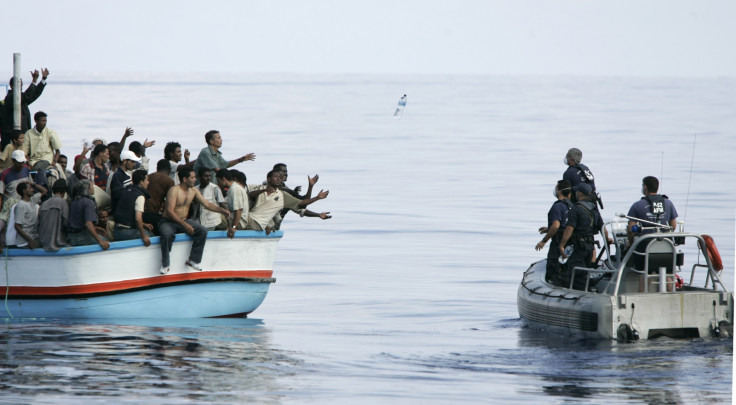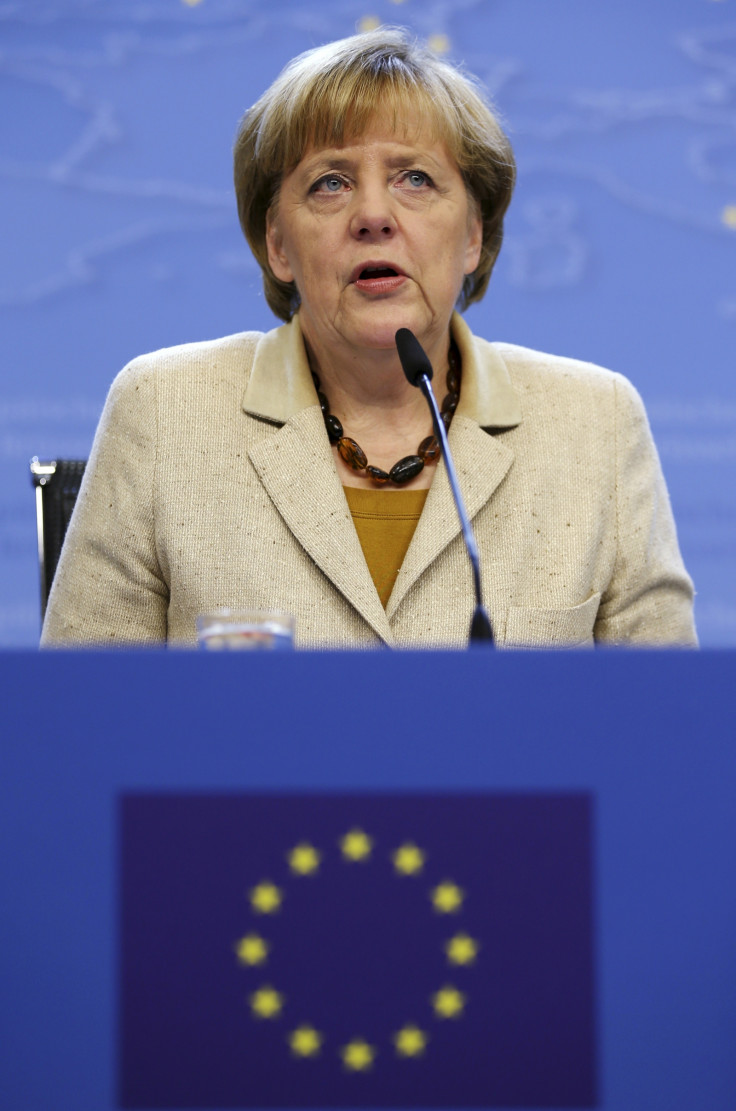Simon Heffer: Dishonest UK foreign policy won't rescue drowning Mediterranean migrants
It took a long time – until a fortnight before polling day in a campaign that has, because of a fixed-term Parliament, lasted for months – but finally foreign policy peeked above the parapet as an issue in the British general election.
The spur was the terrible spate of drownings in the Mediterranean of people trying to reach the southern shores of Europe from Africa, notably from the failed state of Somalia.

And the issue was whether British intervention in Libya, which resulted in assisting the fall of Colonel Muammar Gaddafi and the imposition of near-lawlessness in Libya, was to blame for the porous Libyan borders that now allow a tide of refugees to try and make it to Europe via that country.
There is also the question of what Europe generally, and European countries specifically, should do with those people.
The intervention in Libya was a horrendous mistake, as would have been a comparable intervention in Syria – and, in that case, would have ended up allying us with al-Qaeda and other fundamentalist forces opposed to Bashar al-Assad.
It would also have been a reckless intervention because of the outrageous way in which the present British government has cut the nation's defence capability.
Had Britain gone in there, even in the sense of merely helping out with air strikes, it would have been able to offer only a token force and to make hardly any difference to the outcome. Yet it would have attracted international obloquy and set Britain, in the eyes of many, further against the Muslim world, as if there isn't enough of a difficulty in that regard already.
Defending our way of life
Of course, in an election campaign, people are most concerned about issues literally and metaphorically closer to home – mainly economics. But the national concern in Britain with immigration shows how that issue cannot be divorced from the way in which we conduct foreign policy.
Had we not scrapped most of our navy, we could be in the Mediterranean now rescuing people from drowning and delivering them to a place of safety; having strong defences is not always about smacking someone who presents himself as a potential aggressor on the nose. They are also there to defend our way of life and, as part of that, our values and, we must hope, our sense of humanity.
This does not mean populating our already overcrowded island with thousands of displaced Africans; it does mean not standing by while a humanitarian disaster happens because of the unfortunate attraction of our continent.
At the time of writing, the general assumption is that there will be more left-of-centre MPs in the new House of Commons than right-of-centre ones: that the Conservatives may well end up as the largest single party, but will have no overall majority with which to govern, and will find themselves forced out of power by a leftist bloc that will assume control of the country.
Perhaps that is why there has been so little discussion of the other great foreign policy question, which is whether or not Britain should remain in the European Union, and whether the British people should elect a party that promises a referendum on the issue. The Conservatives do, as do the United Kingdom Independence Party (Ukip). The Lib Dems, typically, are either for one or against one depending on which spokesman it hears talking about it, what time of day, and what the other parties have just said on the issue.
Membership of the EU is not just about the question of sovereignty, it is about the question of what loss of sovereignty means for a country. And that takes us back to the matter of immigration.
To stay or go?

It was not boatloads of Somalians reaching the Sicilian coast that excited the latest bout of British interest in that subject: it was the open borders policy of the last Labour government that allowed hundreds of thousands of migrants from Eastern Europe to come to Britain after former Soviet bloc nations joined the EU in 2004.
Some areas of the country have been transformed by this immigration, and not inevitably to the approval of those who were already living there. Ed Miliband, the Labour leader, has admitted his party got the policy wrong a decade ago. David Cameron says he will fight to reassert controls on the movement of people.
But as Nigel Farage, the Ukip leader, points out, such controls can only be reasserted if Britain leaves the EU. The European Commission has ruled out any sort of treaty change before the end of the decade and Angela Merkel, the most powerful person in the club, has said free movement of people is not up for discussion in any case.
So not only is there hardly any discussion of the fundamental question about continued EU membership – a deliberate policy, I think, designed to stop winning support for Farage, who would like the talk to be of nothing else – but such discussion as there is appears to be fundamentally dishonest.
The same is true of the wider foreign policy debate, because of the extent to which, to have it properly, would require a disturbingly honest account of our weakened defence, which is the underpinning of any such policy we intend to execute.
These great issues may well rear up over the next five years and the British public will wonder why no one warned them about them beforehand.
Dr Simon Heffer is a British commentator and author who has written columns for The Daily Mail, The Daily Telegraph, The Spectator and The New Statesman. He is the biographer of Enoch Powell, Thomas Carlyle and Ralph Vaughan Williams and recently published High Minds: The Victorians And The Birth Of Modern Britain.
© Copyright IBTimes 2025. All rights reserved.






















